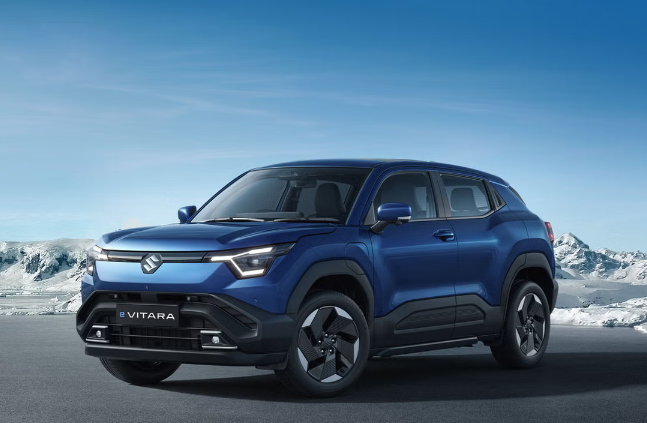
Maruti Suzuki India, which is slated to unveil its first-ever battery electric vehicle – the eVitara – in September, nevertheless continues to espouse a multi powertrain strategy amid multiple global uncertainties about the electric vehicle (EV) ecosystem. This belief in promoting all powertrains, not just electric, comes amid a reported division within the industry over whether the upcoming CAFE norms should be relaxed for small cars.
Maruti has been asking for relaxation for small cars, given their significant presence in its portfolio, but some other OEMs are believed to have opposed this move.
CAFE norms set carbon di-oxide (CO2) emission limits in grams per kilometre for OEMs’ fleets, pushing them to improve fuel efficiency and adopt cleaner technologies. CAFE-II norms are currently in force but the upcoming CAFE-III and CAFE-IV norms are expected to be significantly stricter.
Apart from the differences of opinion on whether small cars should have different norms than other four wheelers, some OEMs also believe that stricter CAFE norms are, in fact, a way to push for greater electrification across the automobile manufacturing ecosystem.
Read more: Maruti Suzuki expands business scope with major overhaul of Memorandum of Association
And this is what Rahul Bharti, Executive Director (Corporate Affairs), addressed during a call with analysts after Maruti’s results for the June quarter this fiscal.
To a question about supply chain resilience for electric vehicle manufacturing and CAFE norms pushing for greater electrification, Bharti said “This is a challenge. It was known. There are other questions around EVs also, like lithium availability or some other critical minerals’ availability.
Fortunately, the government is seized of the matter and they are taking a realistic view. The ministries are talking to each other. So, there is some level of understanding on this. Therefore, in CAFE norms, a multi powertrain approach or a strategy is much de-risked.”
Bharti’s comments follow what he had told ETAUTO earlier. He had said that while Maruti will hardly sell any pure play gasoline ICE vehicle by 2030-31, this transformation will not be skewed only in favour of Battery EVs.
Maruti plans to offer a bouquet of clean fuel vehicles for the consumer to choose from. Apart from BEVs, there will be strong hybrids, vehicles which operate on flex fuel technology, on compressed natural gas (CNG) and even compressed biogas (CBG). By FY31, Maruti plans to sell each and every car fitted with a carbon reduction technology but only 15-20 per cent of the company’s portfolio will be BEVs. This may be in contrast to many other competitors, who are banking significantly on electric vehicle sales by the turn of the decade.
Bharti said during the call that Maruti is “ambitious” on EVs and “we are ambitious on other clean technologies also. Supply chain resilience (for EVs) is not fully established but industry is…
Disclaimer
We strive to uphold the highest ethical standards in all of our reporting and coverage. We 5guruayurveda.com want to be transparent with our readers about any potential conflicts of interest that may arise in our work. It’s possible that some of the investors we feature may have connections to other businesses, including competitors or companies we write about. However, we want to assure our readers that this will not have any impact on the integrity or impartiality of our reporting. We are committed to delivering accurate, unbiased news and information to our audience, and we will continue to uphold our ethics and principles in all of our work. Thank you for your trust and support.
Website Upgradation is going on. For any glitch kindly connect at 5guruayurveda.com



